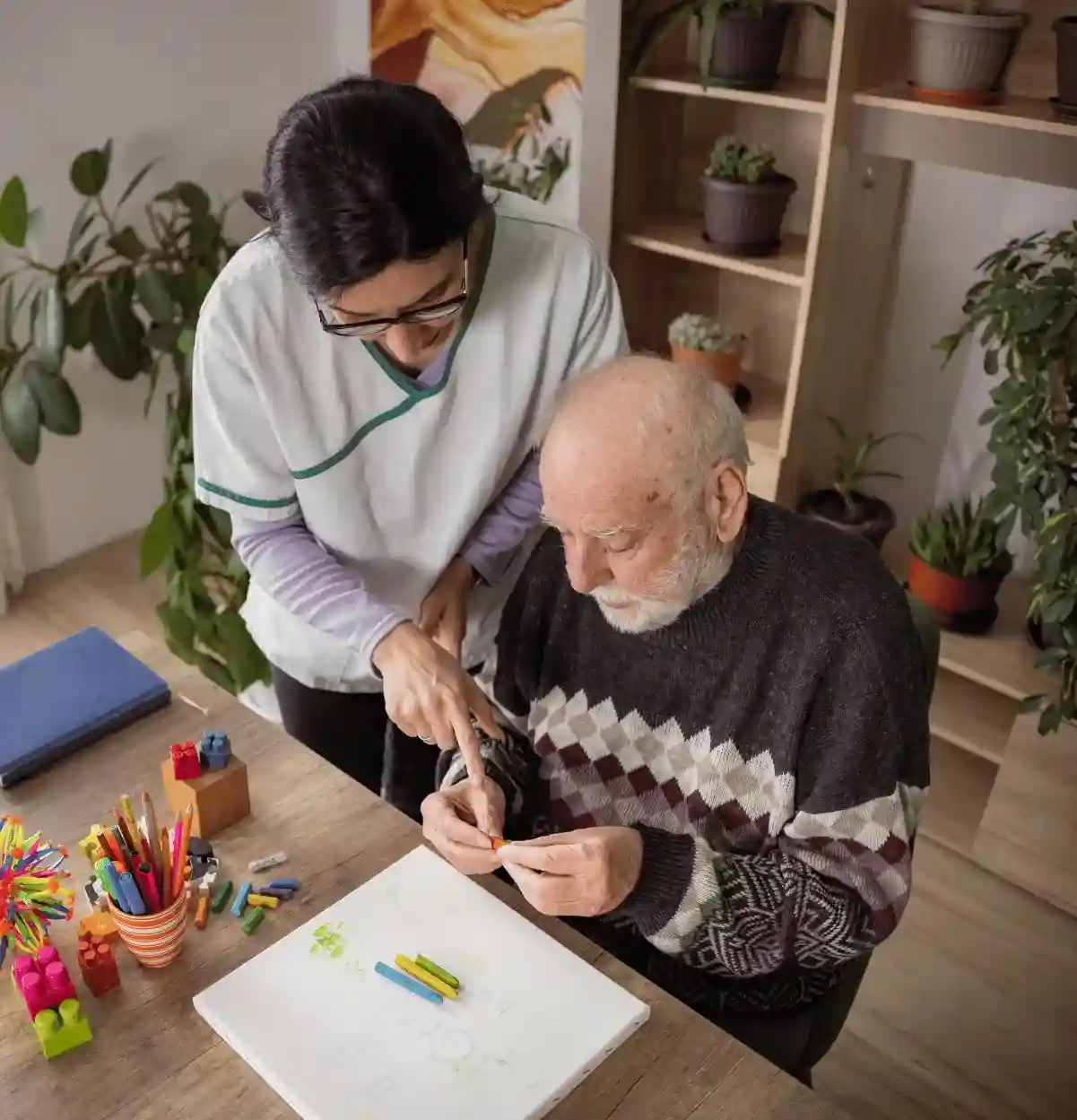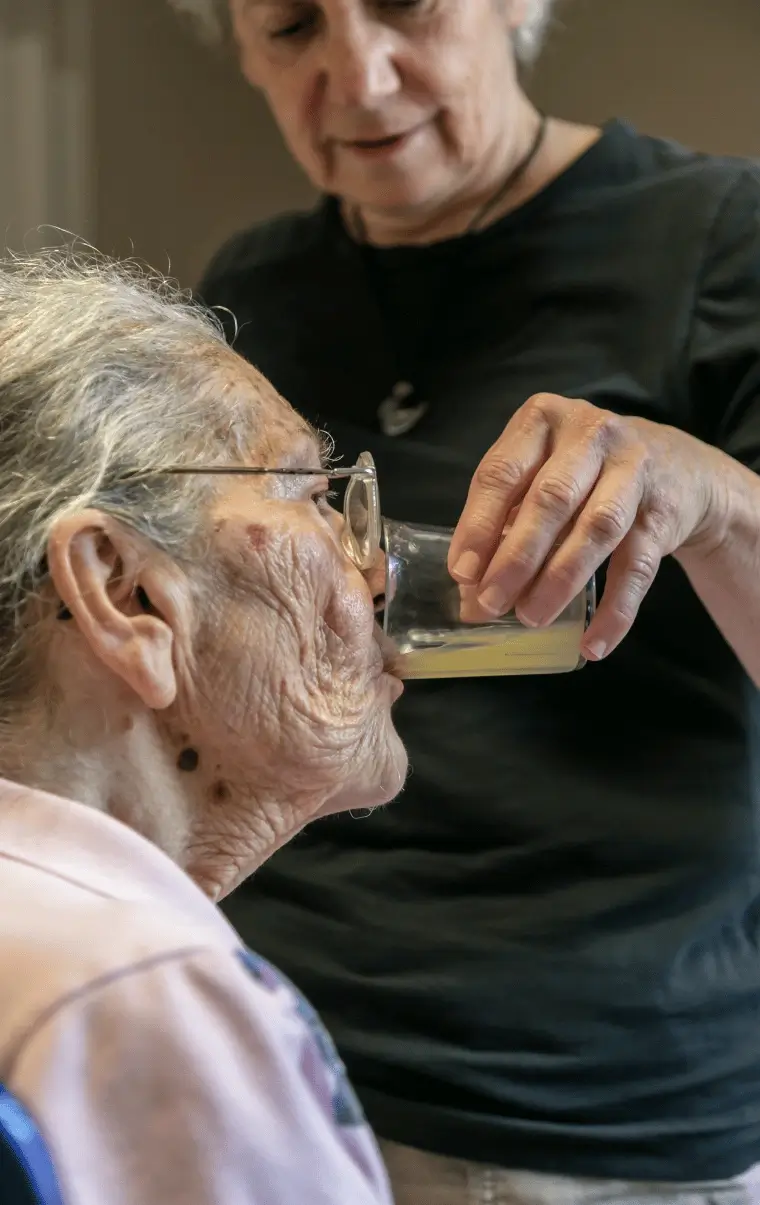Specialized in-home support from GPA-trained caregivers who truly understand dementia.



Contact us now for a free assessment
Memory loss changes everything and without expert help, families face stress, confusion, and burnout.

Your loved one struggles with routine and safety daily.

You’re overwhelmed by constant supervision and unpredictable behaviours.

Without proper support, memory loss accelerates and risks increase.
Watching a loved one struggle with memory loss, confusion, or changes in behavior can be heartbreaking. As dementia progresses, everyday tasks become difficult, and your loved one may no longer recognize familiar faces, places, or even themselves.
Dementia care can quickly become a full-time responsibility, and family caregivers often feel unprepared. ConsidraCare specializes in dementia care at home because we believe that comfort, familiarity, and routine make a powerful difference.






Seniors with non-chronic medical conditions requiring help only for a few hours or days in a week.
Seniors with chronic and serious health issues in need for personal medical care in their homes.
Seniors with life-impacting chronic conditions requiring constant monitoring and assistance in daily tasks.
Or call us on 1-855-410-7971 to get an instant quote




ConsidraCare’s dementia experts provide care that preserves comfort, independence, and dignity. Our caregivers receive GPA training to support seniors through every stage of dementia with patience, professionalism, and compassion.
ConsidraCare’s expertise and compassion are evident in every interaction.
ConsidraCare is a reliable partner in health care, delivering unwavering quality of care.
Our team will help create a custom care plan for your loved one — no pressure, no obligation.

The best care for someone with dementia is personalized, consistent, and compassionate support that allows them to remain safe, engaged, and comfortable, ideally in a familiar environment like their own home.
Care should address daily living needs, cognitive stimulation, emotional reassurance, and ongoing safety. In-home dementia care with trained caregivers, such as those from ConsidraCare provides the ideal balance of routine, comfort, and expert supervision.
Most dementia patients thrive better at home, where familiar surroundings, personal routines, and one-on-one attention can reduce confusion and stress. While nursing homes provide professional care, staying at home often preserves independence, comfort, and emotional well-being for as long as possible.
There’s no one-size-fits-all answer, it depends on the stage of dementia and the individual’s specific abilities. In the early stages, some people can be left alone for short periods. However, as dementia progresses, being alone even for a short time can pose serious risks such as wandering, falls, confusion, or missed medications.
Most experts recommend not leaving moderate to late-stage dementia patients unsupervised at all.
While people with dementia may sleep more due to brain changes or medication, excessive daytime sleeping can disrupt nighttime sleep and lead to confusion or agitation. It’s best to encourage a healthy daily routine with light activity, meals, and short rest periods. If your loved one is sleeping most of the day, consult a doctor to rule out underlying issues like depression, infection, or medication side effects.
Avoid phrases that can cause frustration, fear, or shame. For example:
“Don’t you remember?” – This can highlight memory loss and increase anxiety.
“You’re wrong.” – Correcting them may lead to embarrassment or agitation.
“I just told you that.” – Repetition is common in dementia; patience is key.
Instead, use gentle redirection, validation, and empathy to keep communication calm and supportive.
Yes, many people with dementia experience loneliness and isolation, especially if they struggle to communicate or if relationships fade due to the illness. Emotional connection, companionship, and social activities can greatly improve their mood and well-being. Regular interaction from caregivers, family, and friends is crucial even when verbal communication is limited.
In the early stages, many individuals are aware that something is wrong, which can cause fear, frustration, or sadness. As the disease progresses, they may become less aware of their confusion but still experience moments of distress or emotional discomfort. Even if they don’t understand what’s happening, they often sense when something feels wrong, making reassurance and gentle communication essential.
